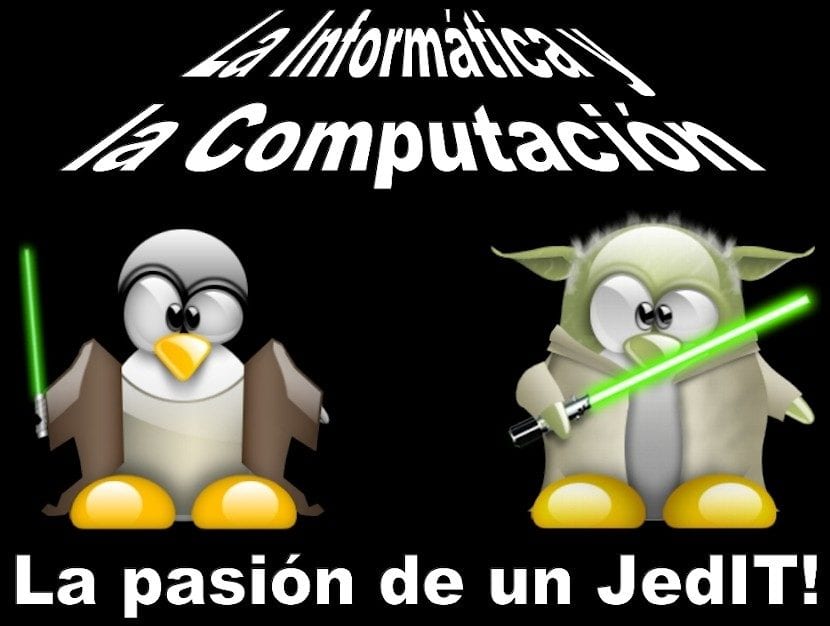
In many of those who enter via studies or self-taught motivation, and who are and do daily life, in the world of Informatics and Computing (IC), there is a «JedIT»In other words, a kind of passionate spiritual warrior, gifted with special qualities in handling the modern, the complex and the advanced in technological and sometimes even scientific matters. Qualities that often tend to be associated with other similar terms such as «Geek», «Nerd», «Hacker» or simply «Genio informático».
«JedIT» it can be said that it is a term that can be classified as an acronym and / or neologism resulting from the words in English «Jedi» e «IT». «Jedi», from the fictional characters of the film series of «Star Wars» they were sensitive to force, the light side, and «IT» from the acronym of the phrase in English, «Information Technology», whose meaning in Spanish is translated as «Tecnología de Información».
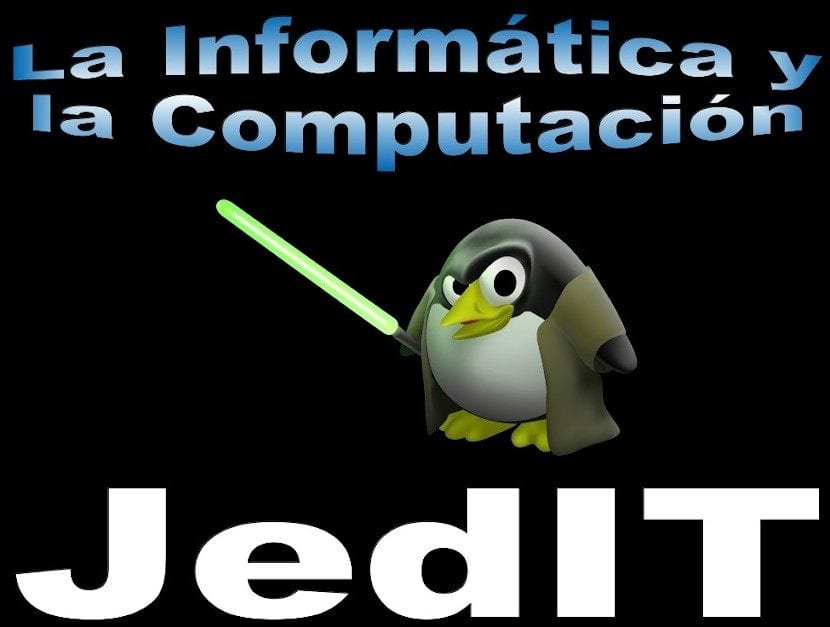
Concepts
Before getting into the subject, it is good to continue clarifying a little the terms or concepts mentioned. Therefore we can say that each one is the following:
Geek
It's a «entusiasta o apasionado» of a particular subject or field. Focused on collecting, gathering data and memories related to the subject that he is passionate about. And remain obsessed with the newest, the coolest, the most fashionable, that your subject or field has to offer and enjoy.
Nerd
Refers to a «intelectual estudioso» of a particular subject or field. Mainly oriented to achieve achievements through the effort in the acquisition of knowledge and skills about curiosities and objects of interest, that your subject or field has to offer and enjoy.
Chippers
It makes mention in general terms of those «individuos especiales» that they like to do normal things in a different, better or incredible way, to have a different thinking and many times "Outside the box". These tend to have the quality of liking to learn, teach others, and compete with each other. All in order to achieve a change that increases happiness, progress, freedom, independence, privacy and security, personal and collective for everyone. Therefore, basically a Hacker is someone who thinks and does better things in favor of the majority.
Although generally, the term «Hacker» are usually used to refer only to «expertos IT, profesionales o autodidactas» who enjoy infiltrating technological systems to demonstrate their computing capabilities before the members of their community, and who tend to fight against a "quasi-invisible system of world oppressive court" represented, often by corporations and governments. And they differ from «Crackers» that also They are IT experts, professional or self-taught, who infiltrate and damage computer systems for criminal purposes.
jedit
«JedIT» is usually a term used to describe those people in the area of Informatics and Computing who are usually «una mezcla de los 3 anteriores conceptos mencionados». That is to say, it targets those technologists who are excessively passionate about staying up-to-date, knowing and mastering the newest, coolest, most fashionable of IC in general.
Making use of intense study and constant practice, through professional or self-taught ways, to acquire the necessary knowledge and skills in the technological area. And they tend to stand out from the rest, from their good colleagues and colleagues, due to their mentality «Hacker», that is, doing and thinking different things, wanting to share, learning to teach, and being highly competitive.
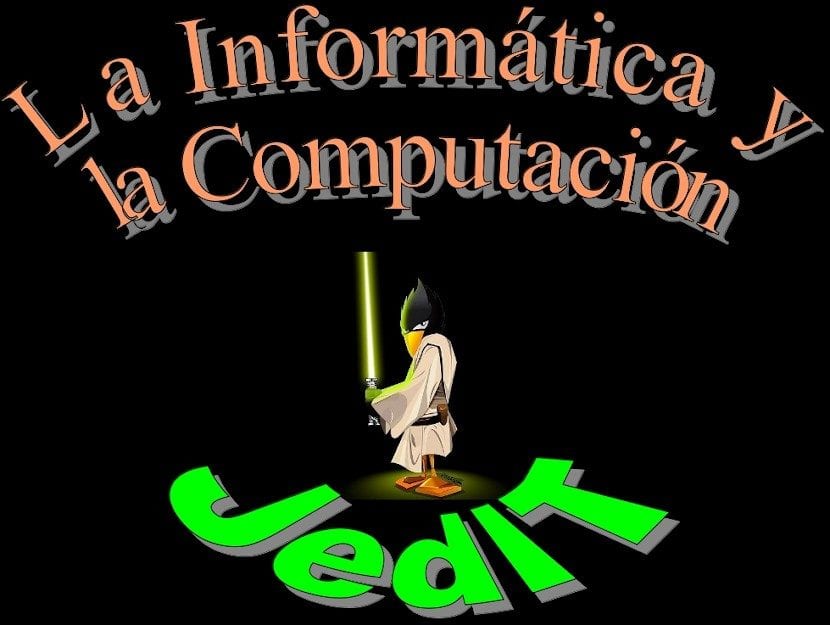
Computers and Tablets
La«Computación» refers to the scientific study carried out on automated information management systems, which is carried out through tools designed for this purpose. Computing refers to the technology itself that allows the management and mobility of information as far as this science or knowledge is concerned and also to the theoretical foundations of the information that computers process, and the different implementations in the form of computer systems.
The term «Computación» It has its origin in the Latin word computatio. This word allows us to address the notion of computation as a count or calculation, but it is generally used as «sinónimo de informática». In this way, it can be said that computation brings together scientific knowledge and methods.
Computer Technology
La «Informática» is a scientific discipline that focuses on the study of the automatic and rational processing of information through the use and application of electronic devices and computer systems. It is a computer word or acronym that comes from the phrase in French «automatique d’informations», coined by engineer Philippe Dreyfus for his company «Société d’Informatique Appliquée» in 1962.
In the Dictionary of the Royal Spanish Academy, computing is defined as:
"Set of scientific and technical knowledge that make possible the automatic processing of information by means of computers."
Science
La «Ciencia» It is the set of knowledge that is organized in a systematic way obtained from observation, experimentation and reasoning within specific areas. It is through this accumulation of knowledge that hypotheses, questions, schemes, laws and principles are generated. And therefore, it is governed by certain methods that comprise a series of rules and steps.
Thanks to a rigorous and strict use of these «métodos» The reasoning that arises from the investigation processes is validated, giving «rigor científico» to the conclusions obtained. This is why the conclusions derived from scientific observation and experimentation are verifiable and objective.
Technology
La «Tecnología» It is the product of science with which man studies, analyzes, repairs and considers the best alternatives to be able to have a fuller, safer, calm and current life, which is in motion, in innovation, in complete evolution and revolutionizing different industries around the world, ranging from everyday improvements in life to the most complicated.
La «Tecnología» it is the set of knowledge and tools with which man develops a better environment, healthier, more pleasant and above all comfortable for the optimization of life. The technology combines the technique of improving a space with the different revolutions that have occurred in recent centuries, agricultural, industrial, digital and other future ones. This word is composed of two Greek words that are «Tekne» which means technique, art and «logia» which gives a translation of skill, that is, it is the technique or skill of something or about something.
Information Technology
All the «Tecnologías de la Información (TI)» they are usually described as the set of processes and products related to the storage, processing, protection, monitoring, retrieval and digitized transmission of information, both electronically and optically. And since the emergence of the Internet, the communication aspect has been massively incorporated into IT, which covers broader areas, under the name known as «Tecnologías de la Información y Comunicación (TIC)».
In such a way that «Tecnologías de la Información y Comunicación (TIC)» are the result of interacting the «Informática» and «Telecomunicaciones». Everything, in order to improve the processing, storage and transmission of information under any medium and format (text, audio, video and images, among others).
Understood by «Telecomunicaciones» to the set of techniques that allow communication at a distance, meters or millions of kilometers and as «Telecomunicación» to the discipline that focuses on the design, study, development and exploitation of the systems that make communications possible.
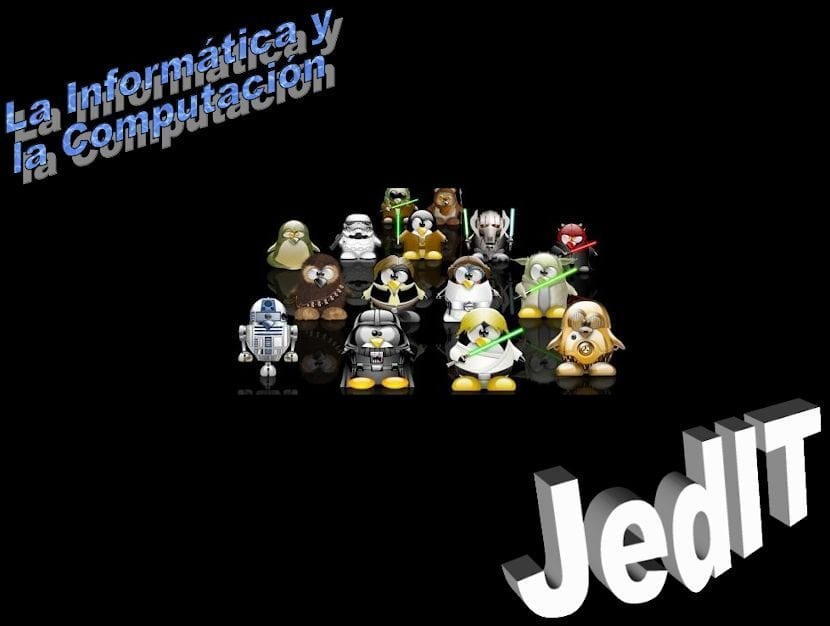
Computer and Computing Knowledge
In the field of «la Informática y la Computación» there are many who live but a «JedIT» stands out because it usually starts from scratch in the area, and progresses and grows little by little encompassing and assimilating an enormous knowledge of each and every one of its areas. Consequently, a good «JedIT» usually knows and masters to a certain degree the knowledge related to the following stages of «la Informática y la Computación»:
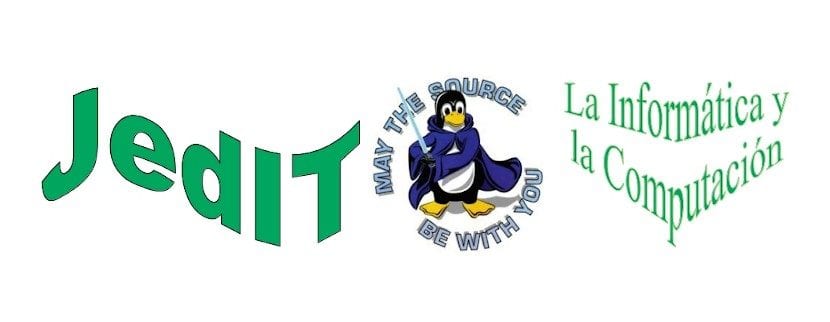
Informatic support
- General knowledge of the concepts and terminology related to the areas of:
- Science and Technology.
- Computing and Information.
- Communication and Information.
Such as:
- Telematics.
- Computer network (PAN, LAN, MAN, WAN).
- Internet and Intranet.
- Domain of the theory and practice of the basic architecture of a Computer / Computer (Hardware):
Such as:
- What is a Computer ?.
- What is a Server ?.
- Elements of a Computer: Cabinet (Case), Power Supply (Power Supply), Motherboard (MotherBoard), Processor (CPU), Memory (Memory), Screen (Display / Monitor), Keyboard (Keyboard), Mouse (Mouse) , Printer.
- Assembling, installation, configuration, and preventive and corrective maintenance of Computers (Desktop, Mobile and Laptops) and the different Operating Systems, commercial or not, most used.
- Mastery of the concepts of Systems, Programs and Applications (Software), their scope, limitations and differences:
Such as:
- Private and Closed Operating Systems, and Free and Open Operating Systems, and their native or multiplatform applications, compatible and useful.
- Average or high dexterity above
- Internet
- Private and free Office Suites
- Private and closed source software utilities, and free and open source software.
- Windows and Linux Terminal Commands
- Scripting for Windows and Linux
Networks and telecommunications
- Mastery of the theory and practice of architecture and elements of a network or computing platform:
- Types of cables and their categories
- Structured cabling
- Network Architectures: Point-to-point, client-server, hierarchical client-server, distributed.
- Type of Networks: Bus, Star, Mixed, Ring, Tree, Double Ring Mesh, Connected.
- Network Segmentation
- Network Addressing
- TCP and OSI model
- CISCO CCNA Model and Technology
- Switches
- Routers
- Optical fiber
- Microwave Links
- Satellite communication
- Telephony
- Telephonic central
- Communication Servers
- Voice IP
Servers and Data Center
- Mastery of the theory and practice of the architecture and elements of a Data Center (Data Center):
- Server Hardware (Internal Parts)
- Types, brands and models of Servers (Associated Technology)
- Data Center Hardware
- Structure and Configuration of Data Centers
- Data Center Categories
- Specifications (TIER) for Data Centers
- Rules of a Data Center
- Installation, Configuration and Recommendations for the use of Servers
- Maintenance and update of Servers
- Server Backups
- RAID by SW & HW for Servers
- Partitioning, File System, and Disk Partition Table
- Server Operating Systems
- Investment, Slack, Growth and Substitution of Servers
- Dating Chip
- NAS and SAN management
- ASA and Firewall management
- Installation and Administration of DMZs and VPNs
- High availability
- Cloud Computing
- Installation and Administration of Virtualization Platforms and Technologies: Xen, Promox, VMware, VirtualBox, KVM, Citrix Xen Server.
- Management of Applications, Systems and Services: DHCP, DNS, PROXY, MAIL, IDS / IPS, Massive SMS, Web (Apache / Nginx), Database (Postgresql / Mysql / MariaDB), Development (PHP), Backups (Rsync, Bacula), Logs (Logrotate), Repositories, Shared Folders (SAMBA), NTP, among others.
Installation and Administration of All in 1 Solutions: IredMail / Zimbra, Zabbix / Pandora / Nagios / Cacti, OwnCloud / NextCloud, Pfsense / Ipfire, GLPI / OSC Inventory, OpenMediaVault / FreeNAS, among others.
Programming and Development
- Mastery of the theory and practice of the Application Development and Software Engineering process:
- Logic
Algorithms - Web servers: Apache, Nginx
- Databases: PostgreSQL, MySQL and Maríadb, among others.
- High and low level programming languages (HTML, PHP, PERL, Python, C, C ++, C #, Go, JavaScript, MATLAB, R, Ruby, Rust, Scala, Shell, among others.
- Software related to software development (Editors and Integrated Development Environments).
- Types of applications: Native, Web, Hybrid, Progressive Web and Distributed.
- Web services: XML, SOAP, WSDL, UDDI.
- Everything as a Service (XaaS): SaaS, PaaS, IaaS.
Computer Security, Pentesting and Ethical Hacking
- Mastery of the theory and practice of these areas:
- Threat, Risks, Incident.
- Environment Security
- Protection measures and detection mechanisms
- Legal Aspects of Computer Security
- Computer forensics
- Computer Audit
- IT Security Management
- Scripting: Shell Script, Powershell, Javascript and VBscript
- Systems Intrusion Techniques, Mechanisms and Applications
- Engineering and Social Intelligence
IT and IT Management
- Mastery of the theory and practice of management processes associated with the technological and computer field:
- Monitoring, analysis and technological foresight.
- Planning of technological development.
- Design of technological development strategies.
- Identification, evaluation and selection of technologies.
- Adaptation and technological innovation.
- Negotiation, acquisition and contracting of technologies.
- Commercialization of company technologies.
- Patenting.
- Financing of technological development.
- Selection and training of technology advisors and operators.
- Management of research and development projects.
- Supply and evaluation of technical information.
Last but not least, a good "JedIT" will always have or will try to cultivate their knowledge related to:
General Scientific-Technical Culture
- Maths
- Statistics
- Physics
- Chemistry
- Electricity
- Electronics
General Humanistic Culture
- Philosophy
- Psychology
- Ecology and Environmental Conservation
- History
Conclusion
Surely some of those who read this article will see themselves reflected today or wish to see themselves in such a way, as a «JedIT» In the near future, due to the fact that their current attitudes and aptitudes combine both knowledge and behavior with those of a «JedIT».
Which is great, since the world is dominated by technology created by elite scientists and technologists in the service of commerce and politics, and in general, we who in one way or another are or consider ourselves un «Geek», «Nerd», «Hacker» o «JedIT» we usually bring theoretical-practical knowledge to the masses in some way or another, of the «la Informática y la Computación» or any other sphere of life, by any means, many times even simply «blogueando».
Anyway, the world needs more «Geeks», «Nerds», «Hackers» y «JedITs»Therefore, we await you on this side of the force. Especially the force related to Free Software and Open Source, for which we recommend you continue reading our «Blog DesdeLinux» and take a look at the list of my Articles created in the last 2 years on Informatics and Computing.